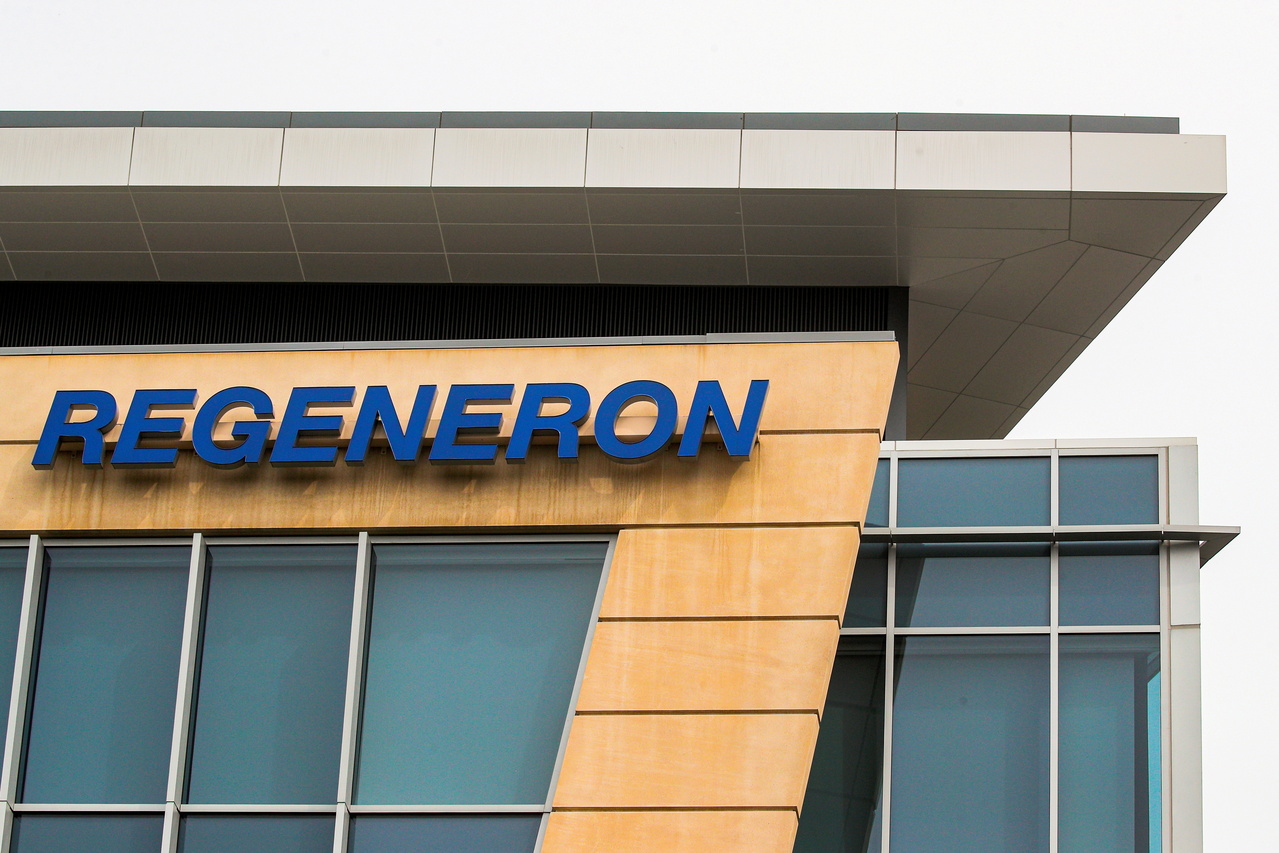Antibody cocktail treatment held up as potential 'game changer' in India's fight against Covid-19
Sign up now: Get insights on Asia's fast-moving developments

Fifty patients at a hospital in Hyderabad were given a dose of Regen-Cov, a cocktail of antibodies designed by Regeneron, and their symptoms subsided.
PHOTO: REUTERS
Follow topic:
NEW DELHI - Traumatised by its recent calamitous battle with Covid-19 and apprehensive of a third wave, India has found a silver lining in a new treatment for Covid-19 patients - a powerful infusion of laboratory-made antibodies.
Several Indian hospitals have reported encouraging results after using this therapy on some of their patients. They showed quick recovery, even avoiding hospitalisation in some cases as well as medication such as steroids, which have been linked to post-Covid-19 complications like mucormycosis, a deadly fungal infection.
At AIG Hospitals in Hyderabad, 50 patients with mild to moderate Covid-19 were, in the last three weeks, given a dose of Regen-Cov, a cocktail of two monoclonal antibodies designed by American biotech firm Regeneron. Symptoms in all the patients subsided within 24 to 48 hours of being administered the therapy.
Some 38 even tested negative in reverse transcription polymerase chain reaction (RT-PCR) tests conducted a week after they had received their doses. The other 12 have to be either tested or are awaiting their results.
None of these 50 individuals were admitted to the hospital and the therapy was administered to them intravenously as outpatients. Dr D. Nageshwar Reddy, the chairman of AIG Hospitals, said the patients had received no other medication but paracetamol to manage their fever. "Most of them, after 24 hours, did not require paracetamol also," he told The Straits Times.
A monoclonal antibody is a laboratory-made protein that mimics the body's immune response.
India granted emergency use authorisation to Regen-Cov on May 4, around the peak of the country's second wave. Casirivimab and imdevimab, the monoclonal antibodies that make up the cocktail, bind specifically to two different sites on the coronavirus spike protein, blocking viral attachment and entry into human cells.
The drug is meant for patients who are at high risk of developing severe Covid-19 and do not require respiratory support. At AIG Hospitals, the patients who received the therapy were aged more than 65 and had risk factors such as obesity, uncontrolled diabetes, immunosuppression and kidney disease.
Another 35 such vulnerable patients with mild to moderate Covid-19 also received a single intravenous dose of the same cocktail at Manipal Hospital on Old Airport Road in Bangalore. None of them had to be admitted to the intensive care unit or needed respiratory support.
"All 35 patients were happily discharged," said Dr Satyanarayana Mysore, the head of department of pulmonology at Manipal Hospitals. The patients' average duration of hospital stay was around 36 hours and they are doing well, Dr Mysore told ST.
Results released on June 16 from the Recovery trial in Britain, described as the world's largest trial of Covid-19 therapeutics, demonstrated Regen-Cov reduced the risk of death even when given to patients hospitalised with severe Covid-19 who have not mounted a natural antibody response of their own.
For every 100 such patients treated with the antibody combination, researchers calculated, there would be six fewer deaths. The treatment was given in addition to the anti-inflammatory steroid drug dexamethasone. Patients who have made their own antibodies to the virus, however, do not benefit from the antibody cocktail.
Monoclonal antibody treatment for Covid-19 has been described as a "game changer" by some in India because it could help cut down on hospitalisation costs, besides freeing up healthcare facilities for non-Covid-19 patients. "This is an evidence-based precision medicine," added Dr Mysore.
A single dose of the cocktail comprising 600mg of each antibody, however, costs around 60,000 rupees (S$1,085), a sum beyond the reach of many Indian families. Roche, which develops and distributes the drug outside the US, brought in 100,000 doses last month in India and is expected to bring in a second batch of another 100,000 doses this week.
India granted emergency use authorisation for another antibody cocktail from US drug manufacturer Eli Lilly on May 31.
Besides adherence to its prescribed use on a specific set of patients, timing is very important for efficient use of this therapy. It is best administered early when the virus is still trying to multiply. Dr Reddy said this drug should ideally be given within seven days of the onset of symptoms or within three days of a positive RT-PCR test. "If you give it very late in the second week, it is not effective," he added.
The drug is not sold at pharmacies and is available only through hospitals, an arrangement doctors have suggested be continued to avoid any indiscriminate use. "The medical force will and should not cave under pressure to give monoclonal antibody treatment just because somebody demands it. It should be merit-based and criteria-based and based on proper education," Dr Mysore told ST.
There are also concerns around evidence that suggests K417N, a mutation in the Delta variant first detetcted in India, may have rendered the coronavirus resistant to casirivimab and imdevimab. This variant is still not widely prevalent in the country.
Dr Reddy said more studies are required to determine the efficacy of this treatment against the Delta variant as well as its newer mutations. "We should not certainly use it indiscriminately because this can produce more mutants," he added.

